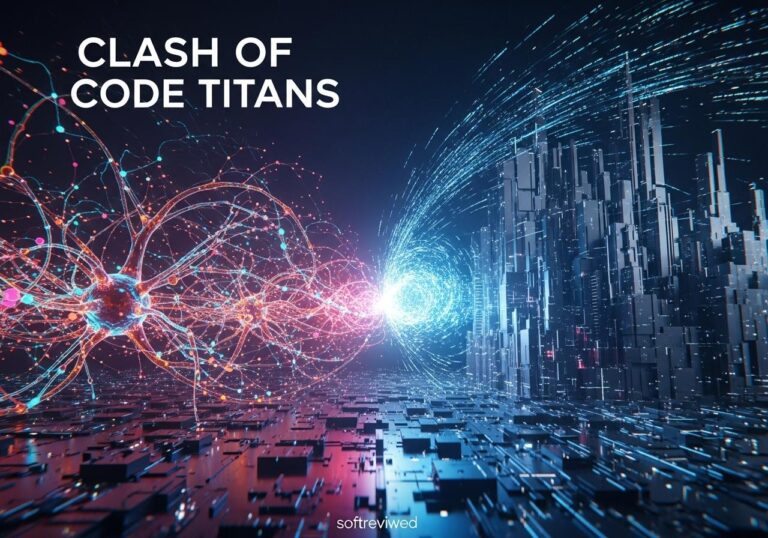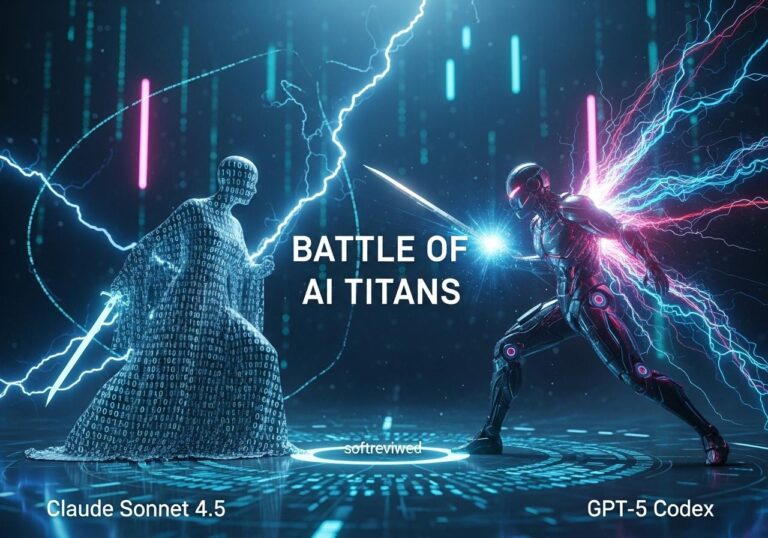Meta’s AI Data Ban in Brazil
Brazil’s data protection authority has taken a significant step against Meta’s use of personal data for AI training, impacting millions of users and raising questions about data privacy and AI development.
🛑 Data Protection Ban
Brazil’s data protection authority banned Meta from using personal data for AI training due to privacy concerns.
👥 Affected Users
Approximately 102 million Facebook users in Brazil, one of Meta’s largest markets, are affected by this ban.
🚫 Innovation Stalled
The ban could delay AI benefits in Brazil and stalls innovation in the country’s tech sector.
🌍 Global Context

Similar pushback has occurred in the EU, while the US lacks strict data privacy laws, highlighting global disparities in data protection.
💰 Non-Compliance Penalties
Meta faces daily fines of approximately $9,100 for non-compliance with the ban.
🔍 Increasing Scrutiny
Global tech companies face increasing scrutiny over personal data usage for AI training, signaling a shift in data privacy expectations.
Meta’s AI Ban in Brazil: Data Privacy Concerns Halt Innovation
In a surprising turn of events, Meta, the tech giant behind Facebook and Instagram, has been forced to suspend its artificial intelligence (AI) operations in Brazil. This decision comes in the wake of a ban imposed by Brazil’s National Data Protection Authority (ANPD), citing serious concerns over user privacy and data protection. The move has sent shockwaves through the tech industry, raising questions about the future of AI development in the region and the delicate balance between innovation and data privacy.
The ANPD’s Ban: A Closer Look
The ANPD’s decision to ban Meta’s use of generative AI technology in Brazil stems from concerns over the company’s new privacy policy. At the heart of the issue is the use of personal data for AI training without explicit user consent. This practice, according to the ANPD, poses a significant risk to individuals’ fundamental rights.
Key Concerns Raised by the ANPD:
- Lack of Explicit Consent: Meta’s policy allows for the use of personal data in AI training without users’ express permission.
- Potential for Harm: The ANPD argues that this practice could lead to “serious and irreparable damage or difficult-to-repair damage” to individual rights.
- Data Protection Violations: The authority believes Meta’s actions may be in breach of Brazil’s data protection laws.
Meta’s Response and Suspension of AI Tools
In response to the ANPD’s ban, Meta has taken swift action by temporarily halting the use of its AI tools in Brazil. This decision, while compliant with the regulatory body’s demands, has not been without controversy.
Meta’s Stance:
- Negotiations Underway: The company is actively engaging with the ANPD to address the concerns raised.
- Innovation at Stake: Meta views the ban as “a step backwards for innovation and competition in AI development.”
- Delayed Benefits: The company argues that this decision will delay bringing the benefits of AI to people in Brazil.
Global Implications: AI and Data Privacy
The ban in Brazil is not an isolated incident but rather a reflection of growing global concerns over data privacy in the age of AI. As AI technologies become more sophisticated and pervasive, regulators worldwide are grappling with how to protect individual privacy while fostering innovation.
Similar Developments in Other Regions:
- European Union: The EU has implemented strict data privacy regulations through the General Data Protection Regulation (GDPR), which impacts AI development and deployment.
- United States: Discussions are ongoing about federal privacy legislation that could affect AI practices.
- China: The country has introduced regulations on the use of algorithmic recommendations, indirectly impacting AI development.
The Impact on Competition and Innovation
Meta’s suspension of AI tools in Brazil raises questions about the future of AI development and competition in the region. This situation could have far-reaching consequences for the tech industry and innovation landscape.
Potential Outcomes:
- Reduced Competition: With Meta sidelined, other tech giants may gain an advantage in the Brazilian market.
- Hesitation from Other Companies: The regulatory uncertainty may cause other tech firms to reconsider their AI strategies in Brazil.
- Local Innovation Boost: Brazilian companies might seize this opportunity to develop AI solutions that comply with local regulations.
Long-term Effects on User Trust and Data Protection
The ANPD’s ban highlights the critical importance of aligning AI development with ethical privacy standards. This incident could have lasting effects on how users perceive AI technologies and the companies behind them.
Potential Long-term Consequences:
- Increased User Awareness: Users may become more conscious of how their data is used in AI training.
- Demand for Transparency: Companies might face pressure to be more transparent about their data practices.
- Stricter Self-regulation: Tech firms may implement more rigorous internal policies to avoid similar regulatory actions.
The Fine Line: Balancing Innovation and Regulation
The Meta AI ban in Brazil underscores the ongoing challenge of balancing technological innovation with data protection and privacy concerns. This delicate equilibrium is crucial for the sustainable development of AI technologies.
Key Considerations:
- Regulatory Frameworks: Developing flexible yet robust regulations that can keep pace with rapid technological advancements.
- Ethical AI Development: Encouraging the creation of AI systems that prioritize user privacy and consent from the ground up.
- International Cooperation: Fostering global dialogue to establish consistent standards for AI development and data protection.
Expert Opinions on the Ban
The AI ban has sparked a range of reactions from industry experts and analysts. Here are some notable perspectives:
“While the ANPD’s decision may seem drastic, it sends a clear message about the importance of data privacy in AI development. Companies must prioritize user consent and transparency to build trust in these powerful technologies.” – Dr. Ana Silva, Data Ethics Researcher
“The challenge lies in creating a regulatory environment that protects individual rights without stifling innovation. Brazil’s approach could set a precedent for other countries grappling with similar issues.” – Professor Carlos Mendes, AI Policy Expert
The Way Forward: Addressing Challenges and Controversies
As the situation unfolds, several key challenges and debates have emerged that will shape the future of AI regulation and development: Governments and organizations are grappling with how to balance innovation with the need for safeguards against potential misuse or unintended consequences. One central issue is the creation of international frameworks, such as the USEU AI Competition Agreement, which aims to foster collaboration between the U.S. and EU while ensuring responsible AI development. This agreement could set a precedent for global partnerships in navigating the complex ethical, security, and economic dimensions of AI.
1. Balancing Innovation and Regulation
The Meta AI ban highlights the ongoing struggle to promote technological advancement while ensuring adequate protection for user rights. Finding this balance is crucial for the future of AI development.
Potential Solutions:
- Collaborative policy-making involving tech companies, regulators, and privacy advocates
- Sandbox environments for testing AI technologies under controlled conditions
- Flexible regulations that can adapt to rapidly evolving technologies
2. Global Regulatory Harmony
The differing approaches to AI regulation across regions pose challenges for companies operating on a global scale. Establishing a cohesive international framework for AI ethics and compliance is becoming increasingly important.
Steps Toward Harmonization:
- International forums for discussing AI regulation
- Cross-border cooperation on data protection standards
- Shared best practices for ethical AI development
3. User Consent and Data Transparency
The core issue of user consent in AI training remains a contentious topic. Companies must find ways to obtain meaningful consent while clearly communicating how user data will be used.
Improving Consent Practices:
- Clearer, more accessible privacy policies
- Granular consent options for different types of data usage
- Regular updates to users about how their data is being used in AI systems
Future Implications and Potential Impacts

The Meta AI ban in Brazil could have far-reaching consequences for the tech industry and AI development globally:
1. Increased Emphasis on Data Privacy
This incident is likely to reinforce the importance of data privacy in AI development. Companies may need to reassess their data collection and usage practices to maintain user trust and regulatory compliance.
2. Global Policy Implications
Brazil’s approach could influence AI regulatory policies in other countries, potentially leading to a more standardized global approach to data privacy and AI ethics.
3. Innovation Strategies
Tech companies may need to develop new strategies for innovation that prioritize privacy by design, potentially leading to more ethical and user-centric AI technologies.
4. Market Dynamics
The ban could alter the competitive landscape in Brazil’s tech sector, potentially opening opportunities for local companies or those with more privacy-focused approaches.
Conclusion: A Turning Point for AI and Privacy
The Meta AI ban in Brazil represents a significant moment in the ongoing dialogue between technological innovation and data privacy. As AI continues to evolve and permeate various aspects of our lives, the need for clear, ethical guidelines and robust regulatory frameworks becomes increasingly apparent.
This incident serves as a wake-up call for tech companies to prioritize user privacy and consent in their AI development processes. It also highlights the crucial role that regulatory bodies play in safeguarding individual rights in the digital age.
As we move forward, the tech industry, policymakers, and users must work together to create an environment where AI can flourish without compromising personal privacy. The challenges are significant, but so are the potential benefits of getting this balance right.
Ultimately, the Meta AI ban in Brazil may be remembered as a pivotal moment that helped shape a more responsible and user-centric approach to AI development worldwide. As the situation continues to unfold, it will be crucial for all stakeholders to remain engaged in this important conversation about the future of AI and data privacy.
What are your thoughts on the balance between AI innovation and data privacy? Share your opinions and join the discussion on this critical issue shaping our digital future.
Meta’s User Base in Brazil vs. Total Population
This chart compares Meta’s active user base in Brazil to the country’s total population, highlighting the significant market penetration of Meta’s platforms.







